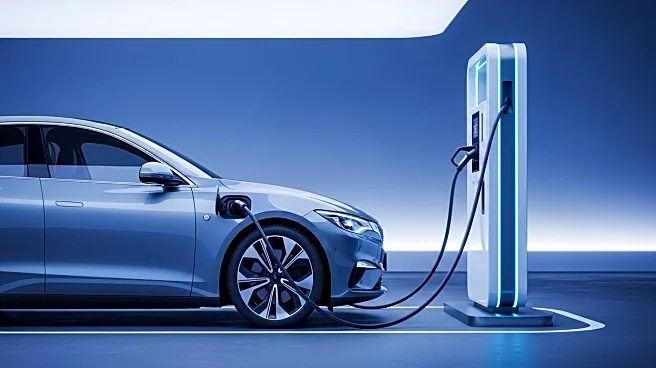What's Happening?
BYD has launched a refreshed version of its Han model, significantly increasing the battery range for both its plug-in hybrid electric vehicles (PHEVs) and battery electric vehicles (BEVs). The new PHEV Han now offers a range of 245 km, while the BEV Han provides up to 705 km on the top spec model. These updates coincide with China's announcement of new regulatory standards requiring PHEVs to have a minimum range of 100 km and BEVs to meet stricter efficiency targets to qualify for purchase tax exemptions. The regulations aim to address market inefficiencies and promote sustainable automotive practices.
Why It's Important?
The regulatory changes in China are set to impact the automotive industry significantly, making it challenging for some companies to operate profitably. Automakers will face difficulties in liquidating outdated vehicles at a loss, pushing the market towards more sustainable practices. BYD's proactive approach in enhancing vehicle range and efficiency positions it favorably in the evolving market landscape. The company's vertical integration and robust R&D capabilities allow it to adapt swiftly to regulatory changes, potentially leading to increased competitiveness and market share.
What's Next?
As China implements stricter emissions and battery fire regulations, automakers will need to innovate to comply with these standards. BYD's proactive measures may set a precedent for other companies, encouraging them to enhance their product offerings. The regulatory environment may lead to consolidation within the industry, with companies unable to meet the new standards facing potential exits or mergers. Additionally, the global market may see an influx of Chinese vehicles as domestic sales decline and export sales rise.
Beyond the Headlines
The regulatory changes in China could have global implications, influencing automotive standards worldwide. As Chinese automakers like BYD expand their presence internationally, they may drive advancements in vehicle efficiency and safety. The shift towards electrified vehicles in China could accelerate the demise of internal combustion engine-centric models globally, promoting a more sustainable automotive industry.











